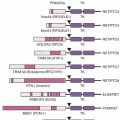!DOCTYPE html PUBLIC “-//W3C//DTD XHTML 1.1//EN” “http://www.w3.org/TR/xhtml11/DTD/xhtml11.dtd”>
Helene Fink was a 56-year-old woman with stage IV breast cancer. Toward the end of the course of the disease, her bone marrow was filled with tumor cells, with all the usual hematologic sequelae. Her pain was well-controlled and she continued an active life in seeming disregard of her disease. Her oncologist was concerned that Mrs. Fink did not appreciate the gravity of her situation, so she explained to the patient in detail what was happening and how serious it was. The patient stopped her activities and became bedridden. The oncologist explained to me at length that she believed in telling patients the truth and that truth-telling was essential for the patient’s well-being, especially in the contemporary scene. She also called the patient’s husband to explain the importance of telling the truth. It took considerable effort to get the patient back to her previous level of activity, which continued until shortly before her death 3 months later.
This scenario is quite common. Apparently, the physician’s goal in such settings is to make sure the patient knows the truth. The emphasis is on telling the truth. All clinical actions, all actions meant to have an impact on the patient—in oncology, as elsewhere—should have a goal. For example, diagnostic actions have a goal-specific therapy; chemotherapy, radiation, or other modalities have a goal, usually curative, palliative, or local control of disease. The goal of cancer treatment, in general, has long been to improve survival. Recently, this has been modified by the addition of the goal to treat without decreasing quality of life. A general statement of these goals is that they are meant to help the patient.
Patient communication—talking with patients—is a clinical action. Therefore, talking with patients should also have a goal: As with the other clinical acts, it should help the patient be better. In the case of Helene Fink, the communication of her oncologist had a negative impact. Truth-telling is not a primary goal; telling the truth is a moral imperative. With rare exceptions, it is obvious that you should tell the truth. Put another way, your communication with the patient should be truthful, but that should be only one of several functions that that communication serves.
The goal of increasing length of survival in the treatment of cancer has achieved considerable prominence over the past several decades. Although this is understandable, people do not get up in the morning just to survive; when they do—like soldiers in battle—survival is in the service of living a life. People get up in the morning to live their lives, to work, to play, to take care of their families, to become famous, or to achieve their goals in life, just like you and your family. Perhaps you believe your patients cannot do that because they are too sick. It is true that many patients with advanced disease are sick. By sick, the author means requiring care in bed, or, if out of bed, requiring regular skilled care. Most people (including doctors) think patients are sick because of the symptoms or because of their advanced disease. Symptoms are often very unpleasant, but the medical community has become very good at symptom relief; still, the patients are sick. Ask them, and they will tell you (whatever their other symptoms may be) that they are “weak,” that they have “no energy,” or that they have “run out of gas.” They have all the characteristics of the sick: They are disconnected from their world, they have the feeling that they have no control over their lives, they have lost the normal feeling of indestructibility, their cognitive function is not what it was, they are filled with uncertainties, and they do not really understand (as hard as they try) what is happening to them. These features and others characterize the phenomenon called the state of illness.
The state of illness is usually brought on by the symptoms and presence of serious disease, but the state of illness is an independent phenomenon. It is not a necessary accompaniment of serious disease. Many clinicians have known patients with serious disease who are not as sick as described here. This was true of Mrs. Fink before the conversation about her bone marrow. They have also known others who were similarly sick, but in whom the disease and symptoms were not serious. The state of illness is an independent phenomenon. It is a state of being. The Oxford English Dictionary definition of a state is, “A combination of circumstances or attributes belonging for the time being to a person . . . a particular manner of existing as defined by the presence of certain circumstances or attributes; a condition.” (For example, the state of love, the state of grief, or a state of helplessness.) States of being are not psychological or physical alone. States of being are physical, psychological, social, and personal. States of being are pervasive, with effects ranging from the molecular to the social. The state of illness can be worsened independently of the disease, and it can be improved independently of the disease. A state of illness is aggravated by pain and other symptoms, but particularly by inadequately controlled pain. The state is also activated or worsened by uncertainty and fear (the two are often related), and it is made worse by actions that remove independence or increase dependence on the staff. (Like the ubiquitous intravenous bag and pole.) Patients can leave the state of illness even though the disease is not better. An important therapeutic goal is ending a state of illness. The primary modalities for the relief of the state of illness are symptom relief and talking with the patient—communication.
The spoken language is the most important tool in medicine; almost nothing happens in its absence. Physicians commonly train themselves to meet very high standards of expertise, but this everyday tool gets about as much respect and training in its use as paperwork.1,2 Yet the most common complaint that patients have now and have had for decades past is that doctors do not talk to them. It has been repeatedly shown that patients who understand what is happening to them and why, are more cooperative and compliant with physician’s suggested regimens. The implication is that what you say to patients really matters. Every word matters. Sometimes physicians say, “I can’t watch every word,” but that would be like a surgeon saying, “I can’t watch my scalpel every moment.” Physicians are all so accustomed to talking and using words in their everyday life that they forget the impact of words on the listener. And they forget that doctor–patient communication is not ordinary conversation. The spoken language acts on the person, and what acts on the person acts on every part of the person. In talking with patients, physicians themselves are the primary therapeutic agent. The vehicle through which virtually everything that physicians do to and with patients is the relationship between the patient and the physician. That relationship is best that is built on trust, and trust is best engendered by the truth. That is not the end of the story; it is the beginning.
Stay updated, free articles. Join our Telegram channel

Full access? Get Clinical Tree








